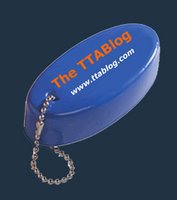Updated TTABlog Collection of Section 2(e)(3) "Primarily Geographically Deceptively Misdescriptive" Cases
Here is an updated collection of Section 2(e)(3) cases. Of course, most of the decisions are not precedential, but even non-precedential decisions may be helpful in framing effective arguments and locating precedential support for them.

There are four elements that must be met to invoke the bar of Section 2(e)(3): (1) The primary significance of the mark is a generally known geographic place; (2) The goods or services do not originate in the place identified in the mark; (3) Purchasers would be likely to believe that the goods or services originate in the geographic place identified in the mark; and (4) The misrepresentation would be a material factor in a substantial portion of the relevant consumer's decision to buy the goods or use the services. In re Spirits Int’l N.V., 563 F.3d 1347, 90 U.S.P.Q.2d 1489, 1490-95 (Fed. Cir. 2009); In re California Innovations, 329 F.3d 1334, 66 U.S.P.Q.2d 1853, 1858 (Fed. Cir. 2003).
Acquired distinctiveness may overcome a Section 2(e)(3) refusal, provided that the mark became distinctive prior to enactment of the NAFTA Implementation Act on December 8, 1993. See In re Boyd Gaming Corp., 57 U.S.P.Q.2d 1944, 1947 (T.T.A.B. 2000).
Marks found to be primarily geographically deceptively misdescriptive under Section 2(e)(3):
- TTAB Finds KOTA JAPAN Primarily Geographically Deceptively Misdescriptive for Knife Sharpening Tools
- TTAB Affirms 2(e)(3) Geographical Deceptiveness Refusal of EMPORIO ITALIA for Bedding
- WYHA? TTAB Affirms Geographically Deceptive Refusal for Hong Kong-Based Kitchenware Company’s TODDLER COPENHAGEN Mark
- TTAB Affirms Section 2(e)(3) Refusal of KUBA KUBA BY DREW ESTATE for Cigars
- EURO for Paint Spray Guns Made in Taiwan is Deceptive, Says TTAB
- TTAB Affirms 2(e)(3) Refusal of GRAN HABANO for Cigars
- Test Your TTAB Judge-Ability: Is VENEZIA-MILANO Geographically Deceptively Misdescriptive of Clothing? [Yes]
- TTAB Affirms Section 2(e)(3) Refusal of KUBA KUBA BY DREW ESTATE for Cigars
- Test Your TTAB Judge Ability: Is "NY" Primarily Geographically Deceptively Misdescriptive for Cosmetics Made Elsewhere?
- TTAB Sustains Section 2(e)(3) Opposition to HAVANA COLLECTION for Cigar Accessories
- CAFC Affirms TTAB: JPK PARIS 75 Geographically Deceptively Misdescriptive of Fashion Accessories
- Precedential No. 24: TTAB Affirms Refusal of REAL RUSSIAN as Primarily Geographically Deceptively Misdescriptive of Vodka
- Precedential No. 15: TTAB Affirms Section 2(e)(3) Refusal of OLD HAVANA as Primarily Geographically Deceptively Misdescriptive of Rum
- Precedential No. 7: On Remand from District Court, TTAB Sustains Section 2(e)(3) Opposition to GUANTANAMERA for Cigars
- WYHA? TTAB finds NAPA FOODS Primarily Geographically Deceptively Misdescriptive for Food
- Test Your TTAB Judge-Ability: Two 2(e)(3) Refusals for Your Perusal
- Precedential No. 3: Finding KUBA KUBA Primarily Geographically Deceptively Misdescriptive for Cigars, TTAB Affirms 2(e)(3) Refusal
- Ruling that TTAB Misapplied Section 2(e)(3) Test, District Court Reverses TTAB's "GUANTANAMERA" Decision
- CAFC Vacates TTAB's "MOSKOVSKAYA" Vodka Ruling, Clarifies 2(e)(3) Materiality Test
- Precedential No. 44: TTAB Sustains 2(e)(3) Opposition to "HAVANA CLUB" for Cigars Made From Cuban Seed Tobacco
- Precedential No. 12: TTAB Sustains 2(e)(3) Opposition to "GUANTANAMERA" for Non-Cuban Cigars, Folk Song Notwithstanding
- Precedential No. 6: TTAB Clarifies Doctrine of Equivalents, Affirms 2(e)(3) Refusal of "MOSKOVSKAYA" for Vodka
- Precedential No. 4: TTAB Affirms Triple Refusal of "NORMANDIE CAMEMBERT" for Cheese
- TTAB Affirms 2(e)(3) Refusal of "FRENCH & FLIRTY" as Primarily Geographically Deceptively Misdescriptive of Lingerie
- TTAB Finds "PARIS BAGUETTE" Geographically Deceptively Misdescriptive of Bread
- Precedential No. 50: Section 2(f) Grandfather Clause Does Not Shield Geographically Deceptive Mark from Section 2(a) Refusal
- Precedential No. 8: TTAB Finds "YBOR GOLD" Primarily Geographically Deceptively Misdescriptive of Cigars
- TTAB Affirms Three Deceptiveness Refusals of "SWISSGOLD" for Watches and Parts
- TTAB Cancels Registration of Deceptively Misdescriptive "ZHIGULY" for Beer
- Fashion-Savvy TTAB Says "No" To "NO-L-ITA"
Marks found not to be primarily geographically deceptively misdescriptive under Section 2(e)(2):
- Precedential No. 2: "BURNS NIGHT" Whiskey Opposition Survives Rule 12(b)(6) Motion to Dismiss
- Precedential No. 45: TTAB Finds CITY OF LONDON Geographically Descriptive for Gin, Grants Motion to Amend to Supplemental Register
- TTAB Reverses Section 2(e)(3) Geographical Deceptiveness Refusal of LAROMANA for Brown Sugar
- Precedential No. 24: TTAB Affirms 2(d) Refusal of MT RAINIER Logo, But Reverses on 2(e)(3)
- TTAB Reverses 2(e)(3) Geographical Deceptiveness Refusal of "AUX ETAT UNIS" for Luggage
- TTAB Finds ARCATA Not Primarily Geographically Deceptively Misdescriptive of Wine
- Test Your TTAB Judge Ability: Is "NY" Primarily Geographically Deceptively Misdescriptive for Cosmetics Made Elsewhere? [No]
- Test Your TTAB Judge-Ability: Is "SW3 UK" Geographically Deceptively Misdescriptive of Clothing? [No]
- TTAB Dismisses Section 2(e)(3) Petition for Cancellation of SWEDISH FIRESTEEL for Fire Igniters
- Test Your TTAB Judge-Ability: Two 2(e)(3) Refusals for Your Perusal
- TTAB Sustains 2(d) Opposition, finding "SWEDISH LUXURY" and "SWEDISH SLEEP SYSTEM" Confusingly Similar for Mattresses
- "CHINATOWN BRASSERIE" Not Primarily Geographically Deceptively Misdescriptive for Restaurant Not in NYC's Chinatown, Says TTAB
- Citable No. 53: TTAB Deals "VEGAS" Playing Card Applicant Winning Hand in 2(a), 2(e)(2), and 2(e)(3) Opposition
- TTAB Rules On Admissibility Of Electronic Evidence In Dismissal Of "SEA ISLAND" Oppositions
- TTAB Reverses 2(e)(3) Refusal Of "SWISSCELL" For Batteries
Read comments and post your comment here.
Text Copyright John L. Welch 2021.

































